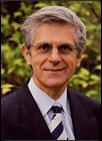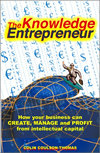 |
 |
|
 |
Using Management Methodologies, Tools and Techniques
By Professor Colin Coulson-Thomas
Many organizations adopt a variety of management approaches, methodologies,
tools and techniques for bringing about significant change. However, subsequent
experience of their use suggests a considerable gap between expectations
and outcomes when they are used in particular corporate contexts.
Many ‘change management’ approaches and techniques are products
of particular sets of circumstances. How relevant are they to contemporary
concerns? How could or should they be used to better effect?
These and related questions were explored during an extensive and international
investigation of corporate transformation experience and practice. The
results are summarized in ‘The Future of the Organization: Achieving
Excellence through Business Transformation’. While widespread frustration
was encountered, we may be closer to success than many have realised.
But first we need to put an unhealthy obsession with standard approaches,
tools and techniques to one side. They should be an aid to thinking, rather
than a substitute for it. Careful selection according to relevance is
essential. More thought is sometimes devoted to the choice of tool than
to the selection of the problem to address.
Too many applications of existing approaches and tools are concerned with
working people harder or the depressing task of downsizing, rightsizing
or reducing the organization to its ‘core’. The roots of most
of the original ideas behind the innovations examined in the course of
preparing ‘The Future of the Organization’ generally lay outside
of the world of work, when seeing a link or connection caused someone
to ask a simple, yet fundamental, question. Instead of trapping their
organizations within a descending spiral of cost-cutting and despair,
their proponents focused upon opportunities and capabilities that could
sustain a positive spiral of growth and development.
Those applying management tools tend to focus upon the more visible ‘formal’
factors. Thus processes are documented and re-engineered, and organization
charts are redrawn to reflect the latest restructuring. The trickier ‘behavioural’
or ‘informal’ arena of attitudes, feelings and values, is
often avoided. Changing the architecture of the corporation may have little
impact upon its ethos, culture and soul.
Standard are dangerous when used as an alternative for careful thought
about what would be best in a particular context. Too much attention is
devoted to ‘tried and tested’ tools and existing approaches
and activities. Identifying missing elements and devising and adopting
new approaches may have greater relevance to bringing about what ought
to be.
People in pioneer organizations make the transition from consumers to
producers of management tools and techniques in order to address the distinctive
features of their own situations and circumstances. At some point companies
aspiring to market leadership develop new approaches rather than absorb,
consume or improve existing approaches. They create rather than imitate.
We need the courage to formulate our own philosophies of business and
develop our own tools and approaches. Inspiration should be sought from
what is simple yet fundamental, and from within rather than from what
is trendy. Proactive and flexible innovators and users initiate trends,
fashions and opportunities. They have vision and purpose, and adopt pragmatic
criteria for development and selection and adapt to changing requirements
and contexts.
Too many people are still victims rather than beneficiaries of restructuring
and re-engineering. They work ever harder rather than more effectively
on the things which really matter. They lack time for reflection. People
who ‘rush about’ sometimes fail to stay in one place long
enough to think issues through or make an impact. The Buddha evolved his
philosophy by sitting under a tree and thinking. Individual and corporate
self-awareness and self-knowledge can help each to establish what they
are particularly good at.
It is what we apply management approaches to and for what ends that generally
determines whether or not they bite us. The rationale of organizations
should be to develop and harness the potential and capabilities of both
individuals and teams, and to apply collective capability and commitment
to those activities that deliver value to customers and achieve business
objectives’. ‘BPR’ could be undertaken to re-engineer
learning processes to improve the quality of working life, introduce new
ways of working or learning, widen job opportunities or help create a
learning organization.
Tools that encourage learning and development are especially valuable.
Shared learning approaches and tools can help to hold groups and networks
together. Their refinement and development can become a key benefit of
network membership.
Commitment to learning and change, with emphasis upon empathy, openness,
trust and tolerance, and knowledge, capability, and competence can enable
renewal and relevance in an uncertain, insecure and transient world. These
are the very areas often most undermined by corporate change programmes.
Learning can be a critical core competence. The support of learning or
transformation partners can help an organization identify and overcome
barriers to learning. They can advise on appropriate learning approaches
and technologies and generally help to assess and improve the quality
of individual, group and organizational learning. Shared learning across
functional, project group, business unit and organisational boundaries
can be particularly beneficial.
We should stress the fun of shared learning and future discovery rather
than dwell on the frustration, disappointment and pain of past restructuring.
People should be encouraged to work and learn in whatever ways suit their
circumstances and preferences, match their aptitudes and allow them to
give of their best. Social creatures thrive on trust, and the interaction
and interdependence that allow individuals to create and negotiate roles
that enable them to contribute while being true to themselves.
Mature people seek environments that foster creativity, encourage responsible
risk taking, and enable them to grow and develop. Variety, tailoring and
the tolerance of very different approaches is often the key to corporate
success and individual fulfillment.
Building a community of people who are open minded and free thinking may
be a more sensible strategy than the adoption of a complete framework
such as quality that may end up acting as a protective cocoon. Many people
throughout the ages would not have been innovators if they had been equipped
with a standard tool-kit that caused them to look at the world and its
problems in the same way as everyone else. They had the courage to attract
or create whatever capability and competencies are relevant to the opportunities
they define and the markets their imaginations create.
In conclusion, the emphasis should be upon values and relationships roles,
competencies and behaviours rather then procedures and structures; flexibility
and intuition rather than prescriptive and mechanical approaches, the
fostering of diversity and creativity rather than the enforcement of standards;
learning rather than control. Management also needs to be holistic to
understand interrelationships between elements and assemble the combination
of them that will deliver multiple objectives and longer-term goals such
as renewal and transformation. People should be beneficiaries of change
and not its victims.
The options, examples and opportunities examined in the course of preparing
‘The Future of the Organization’ suggest that, given a shared
sense of purpose, supportive learning partners, and an appropriate mix
of change elements, renewal and transformation can be achieved. The potential
payoffs, both for ourselves and for others, more than justify the incremental
effort. Go for it.

Professor Colin Coulson-Thomas |
About the Author:
Professor Colin Coulson-Thomas
is an experienced chairman of award winning companies and consultant.
He has advised over 80 boards on how to improve board and corporate
performance, leads the world's largest winning business research
and best practice programme, and has reviewed the processes and
practices for winning business of over 50 companies.
Following marketing and general management roles Colin became the
world's first Professor of Corporate Transformation and more recently
Process Vision Holder of major transformation projects. He is the
author of over 30 books and reports, including ‘Individuals
and Enterprise’ (Blackhall Publishing, 1999), 'Shaping Things
to Come' (Blackhall Publishing, 2001), 'Transforming the Company,
Manage Change, Compete and Win' (Kogan Page, 2002 and 2004)
and ‘The Knowledge Entrepreneur’(Kogan Page,
2003). Colin has spoken at over 200 national and international conferences
and corporate events in over 20 countries. He can be contacted:
Tel: 01733 361 149
Fax: 01733 361 459
Email: colinct@tiscali.co.uk
Web: www.ntwkfirm.com/colin.coulson-thomas
|
|
Transforming the Company: Manage Change, Compete & Win
Colin Coulson-Thomas shows that to bridge the gap between rhetoric
and reality, business people must make far-reaching decisions about
the value to them and their companies of particular theories, past
assumptions and traditional approaches. Based on original research,
the first edition of this was ahead of its time and predicted many
of the current management trends. The author now brings the text bang
up-to-date for the 21st century. This second edition of Transforming
The Company shows how to turn theory into practice by highlighting
the obstacles and barriers that confront companies when trying to
bring about change. For management at all levels faced with this task,
this thought-provoking book will inspire and enlighten. |
| 
Buy
UK Buy
US
|
The Knowledge Entrepreneur: How Your Business Can Create,
Manage and Profit from Intellectual Capital
In many companies knowledge management has focused almost exclusively
upon the packaging of existing knowledge. This book is designed
to help readers boost revenues and profit by significantly improving
the performance of existing activities and also creating new offerings
that generate additional income. It shows how practical knowledge-based
job-support tools can transform work group productivity, and reveals
the enormous scope for addressing contemporary problems such as
"information overload" with imaginative responses. Additional
information includes: a list of possible commercial ventures; detailed
checklists that can be used for identifying and analysing opportunities
for knowledge entrepreneurship; and exercises for assessing entrepreneurial
potential and "scoping" possible products and services.
The free CD-ROM packaged with the book gives examples of particular
knowledge-based job support tools that have dramatically improved
desired results in crucial areas such as winning more business.
|

top of page |
 |
